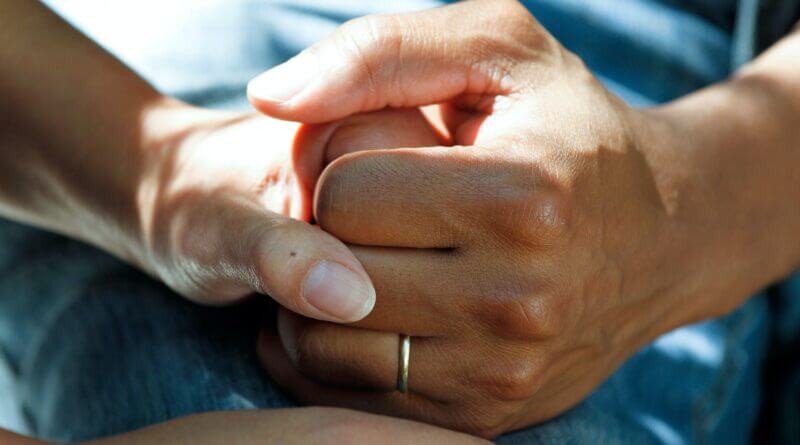McNary: The ABC’s of Caregiving
By Loretta McNary
If you are like me, you realize life is happening fast. Let’s talk becoming a Care Giver. Lately I am finding myself in a lot of conversations with caregivers. Most caregivers did not have time to put a plan in place and those that did have a plan, they shared there were things that did not according to their plan.
The ABC of Care Giving seems to take on a different meaning for different people. For the sake of this article, I created a list that I hope will help those who are presently taking care of a loved one, and for those who may be called upon to care for a loved one in the future.
This list is not an exhaustive list, it is merely a starting place for someone caring for a loved one.
By incorporating these additional steps, hopefully you’ll be equipped to not only ensure better care for your loved one but also prioritize your own well-being and resilience as a caregiver.
My personal favorite is the last one! Asking others for help is one of the most crucial aspects of care giving.
- A – Acknowledge Your Emotions
- B – Balance Your Life
- C – Communicate Effectively
- D – Prioritize Self-Care
- E – Educate Yourself
- F – Seek Financial Support
- G – Gather with Others
- H – Ask for Help

Acknowledge Your Feelings. Care giving can be an emotionally challenging experience. It is imperative to acknowledge your feelings and give yourself permission to feel overwhelmed, frustrated, unprepared and unqualified. Recognizing your feelings will help you manage your stress and find healthy ways to cope.
Balance Your Life. Care giving can quickly consume your life, but it’s necessary to maintain a healthy balance. Make time for activities that bring you joy, practice self-care, and prioritize your physical and mental health. As a caregiver you are taking on additional responsibilities sometimes, without the option of giving up any day-to-day duties. So do not underestimate the stress this can cause you mentally and physically.
Communicate Effectively. Effective communication is extremely vital when care giving. This can help reduce the likelihood of misunderstandings and hurt feelings. Learn to listen actively, clearly express your needs clearly, be patient, be sensitive and seek sound advice from family, friends, and healthcare professionals.
Decide to Prioritize Self-Care. Remember, taking care of yourself is essential too! Schedule time for activities that nourish your mind, body, and soul, such as exercise, meditation, and hobbies. Schedule time on your calendar to help ensure you will take time to unwind as often as possible.
Educate Yourself. Ask a lot of questions about their diagnosis and best care practices for taking care of your loved one. Read articles and books on care giving. Talk to family and friends who are taking care of a loved one. Share your knowledge with others. Stay informed about treatment options and potential side effects from the medicines they are prescribed. This newfound knowledge will empower you to make informed decisions and deliver the best possible care. Additionally, contact your local AARP and Alzheimer’s Association for additional information, activities, and resources for caregivers.
Find Financial Support. Care giving can be costly, so explore financial resources like government aid, insurance benefits, and local non-profit organizations that may offer assistance. Also ask your employer about FMLA. The FMLA entitles eligible employees of covered employers to take unpaid, job-protected leave for specified family and medical reasons with continuation of group health insurance coverage under the same terms and conditions as if the employee had not taken leave.
Gather with Others. Reach out to fellow caregivers through support groups or online forums to share experiences, receive emotional support, and find camaraderie.
ASK for Help: As a caregiver, asking for help is a vital aspect of ensuring your own well-being and the best possible care for your loved one. Asking for help for the super independent person, is a very difficult thing to do, but it is imperative that we ask for help when taking care of a loved one. It’s essential to recognize that care giving can be overwhelming and that seeking assistance is a sign of strength, and it is not weakness. Asking for help can range from delegating tasks to family members or friends, seeking support from fellow caregivers, or reaching out to healthcare professionals for guidance. By asking for help, you can prevent burnout, lessen the effects of stress, gain new perspectives, and ensure that you’re providing the highest quality care for your loved one. Please do not hesitate to reach out – asking for help is a valuable part of providing quality care giving that benefits both you and your loved one.
In conclusion, being a caregiver is both a challenging and rewarding experience. However, by acknowledging your emotions, balancing your life, and communicating effectively, you will be able to successfully navigate the ups and downs of care giving with grace, humility, and resilience.
Always remember, you are not alone, and there are plenty of resources and information available to support you every step of the way.
Loretta McNary is our Lifestyles contributor. Catch “The Loretta McNary Show” on her channels, including broadcast TV, YouTube, Facebook, her website, and elsewhere.






